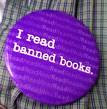 When Gerry Durrell was 10 years old his family, composed by his mother, 23-year-old Larry, 19-year-old Leslie and 18-year-old Margo, decided to move to the Greek island of Corfu and lived there for five years.
When Gerry Durrell was 10 years old his family, composed by his mother, 23-year-old Larry, 19-year-old Leslie and 18-year-old Margo, decided to move to the Greek island of Corfu and lived there for five years.
This is an "accurate and unexaggerated picture" of how Gerry saw his family and the animal world which richly populated the island.
Although the book title refers to the author's family I found myself a lot more interested in Gerry's love for zoology. It must have been heaven for a kid with such a passionate interest to live in an island like Corfu. It literally buzzed with life and the book portraits this so well. You can feel just how much the author loved this place by reading the lengthy descriptions of the beauty of its flora and fauna. The natural wonders of the island provided him with all sorts of entertainment and his houses (because the family moved from villa to villa quite a lot) often became the home for the strangest and sometimes scariest pets, including snakes, scorpions and owls.
Some accounts of animal lives were more hilarious than others, like Achilles', the strawberry-loving tortoise, whose favourite pastime was climbing on people in the garden:
If [...] you were lying on a rug, sun-bathing, Achilles would be convinced that you were lying on the ground simply to provide him with amusement. He would surge down the path and on to the rug with an expression of bemused good humour on his face. He would pause, survey you thoughtfully, and then choose a portion of your anatomy on which to practise mountaineering.
Or the over-enthusiastic male swallow's:
He seemed determined to leave no stone unturned to provide his young with the finest nest-lining in the colony. But, unfortunately, he was no mathematician, and, try as he would, he could not remember the size of his nest. He would come flying back, twittering in an excited if somewhat muffled manner, carrying a chicken or turkey feather as big as himself, and with such a thick quill it was impossible to bend it. It would generally take his wife several minutes to convince him that, no matter how they struggled and juggled, the feather would not fit into the nest.
Or the grumpy owlet Ulysses', and the fierce gecko Geronimo's and his epic battle with the giant mantis Cicely.
But really, the whole book was a pleasure to read. The author's family was definitely bizarre, and so were their friends who were invited once in a while, and for whom the family moved villa more than once, just to fit them all in. The matter-of-factly way of recounting the events by the author makes everything even more endearing. That was just what happened, even though sometimes it sounded surreal or just straight out of a slapstick comedy.
I admit I wasn't always comfortable with how Gerry treated the animals he found. He often captured them and brought them home with him, even when they were clearly wild creatures. A couple of time he actually hunts the mother's nest or den and brings the tiny newborn with him. I wanted to shout at him to leave the poor thing alone, but then I had to remember that he was only a kid enamoured with the animal life and way too eager to observe it as close as possible. Moreover, he didn't have anyone to tell him otherwise, so why shouldn't he?
Gerry grew up to be a notable naturalist so I'm sure he learned to respect the wild life in time.
So, despite some occasional criticism, I enjoyed this book very much, definitely one to recommend in the future.
other blog reviews:
BookNAround










